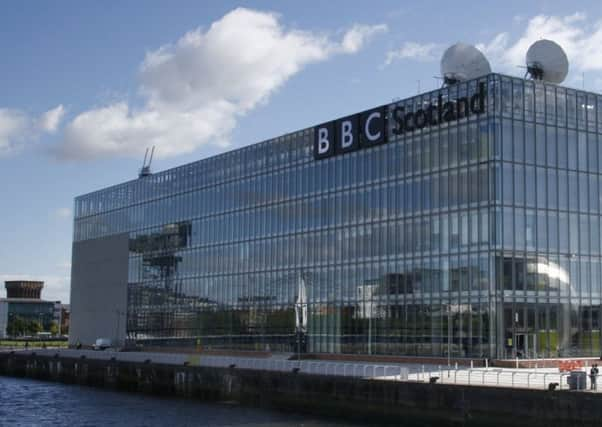Brian Ferguson: BBC Scotland's new channel can transform film and TV


No-one is likely to accuse the corporation of running into the new venture, the centrepiece of an announcement by director-general Tony Hall heralding its biggest investment in Scotland for two decades. Yet there is already a sense of axes being sharpened for the new channel well before it goes on air in February.
The reaction to the original announcement of the channel was decidedly muted with politicians and pundits queuing up to query whether it would be hamstrung by a budget of £32 million a year. Further alarm bells were set off in May when BBC Scotland director Donalda Mackinnon admitted the new channel was not ready for a planned launch in the autumn and would be put back until 2019. The final, crucial, approval for the new channel was not secured from media regulator Ofcom for another few weeks, although the green light was given against a background of simmering discontent about the BBC benefiting unfairly at the expense of other media companies.
Advertisement
Hide AdExactly what would be shown on the channel has, until recently, been a closely guarded secret, save for the centrepiece of its schedule, a nightly “Scottish news hour” programme. That has now changed with BBC Scotland offering the first glimpse of the schedules – to a decidedly mixed reaction.
Considering the level of secrecy surrounding the announcement, there was a fair amount of head-scratching at what eventually emerged from a briefing at its Pacific Quay headquarters in Glasgow. Perhaps the most bemusing element was a decision to trumpet premieres of River City and Scot Squad on the new channel rather than on BBC One, when an expectation had been generated that new comedy and drama would find a home on the channel. It was already known that rapper Darren “Loki” McGarvey would front his own six-part series.
Arguably the biggest reveal was that fashion vlogger Jamie Genevieve – a new name to me but undoubtedly one of Scotland’s big new social media stars – would be the subject of a fly-on-the-wall show. The most bizarre announcement was a car-based game show fronted by Scottish wrestling star Graeme “Grado” Stevely. A pessimistic view of these early highlights is that they rather harshly expose the budget limitations that the new channel is saddled with.
Yet there are lofty ambitions for the channel over the new development of high-quality documentaries, films, drama and comedy series. Bridging this apparent gap in the short-term is going to be one of the main challenges. But BBC Scotland is upbeat about the level of interest already built up within the industry and the prospects of new collaborations being formed on the back of the new channel, which frankly will not be able to deliver high-quality programming from its own resources. What it could and should do is act as a catalyst for the film and TV industries – if it is given enough time to bed in and secure backing to bring ideas to fruition. It strikes me that the new channel has the kind of potential to match the success of the National Theatre of Scotland, which had a long and agonising birth. It has helped rear a new generation of talent by building long-lasting relationships across the country. It is now hard to imagine the Scottish cultural landscape without it. Given half a chance, is it that hard to imagine the new BBC Scotland channel achieving something similar in a couple of years time?
